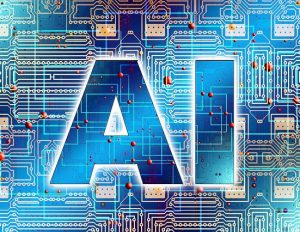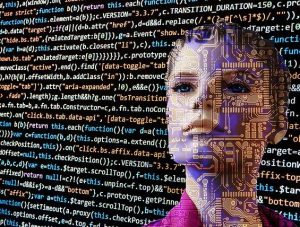The world we live in has certainly changed a lot. The lives we lead today differ greatly from those that our ancestors had; even our lives today differ from our lives only a few decades ago. The development of technology changed our entire world incredibly quickly; it has opened possibilities we never dreamed of. for example, betting online with Unibet welcome bonus. Entire industries and jobs have emerged thanks to computers and the Internet. We have countless programmers making every aspect of our online life possible. However, will there come a time when the creation of computer programs and applications will no longer need to be done by humans at all? Will AI do most of the programmers’ work in the days ahead?
What is AI?

Artificial intelligence, AI for short, is a complex computer system, capable of interpreting data from the outside world, analyzing it, and learning from it. Therefore, a typical example of an AI would be a system that analyzes the surroundings and implements the collected data to maximize the chances of success for certain actions to be completed. Depending on the complexity of the task, the system can be more or less complex; they are already used for different things –Google even has an AI that composes music in style of classical composers based on the notes prompted by online visitors. However, the notion of a machine being able to perform basic human tasks is not new.
The history of AI
The notion of artificial intelligence is far from new; even in ancient times, there were myths and legends that included sentient inanimate objects, usually created by very skilled craftsmen, wizards, or even gods, like Hephaestus’ golden robots. However, this idea did not dwindle in the centuries to come; in the Middle Ages, the legend of the Golem was popularized, and in the 19th century, they were immortalized in literature, with Mary Shelley’s Frankenstein. On the other hand, philosophers who tried to explain how the human mind works by representing it as a complex collection of mathematical and logical operations also contributed to the image of AI that we see today. However, no serious attempts were made at creating artificial intelligence, until 1956, when it was officially created as an academic discipline. The first machines did little more than play checkers and learn playing patterns, but these were still very significant steps in the development of AI as we know it today.
Can AI write code?

Artificial intelligence today has certainly advanced to the stage that it can be effectively taught to write code, and some experiments have proven this to be true, but at the moment, artificial intelligence cannot produce anything close to usable code. However, AI has the potential of performing some actions better than human programmers. For example, once they become advanced enough to detect syntax errors, they will be able to go through countless lines of code and detect any errors faster and with more precision. There will be fewer chances of slip-ups, as they will be more thorough and will not get distracted, fatigued, or in any other way impaired, unlike their human counterparts.
Will AI replace programmers altogether?
It is very unlikely that such a thing could happen. For one, we are not even close to the time where AI could write code on their own, as it still requires a lot of work and development. However, programming is not merely about producing lines of code that work; it requires a critical mind, able to analyze and recognize how the elements of a program or application will be used by the consumers, and predict their needs, which requires more than just a machine; AI will one day be able to write code, but not without human help.
